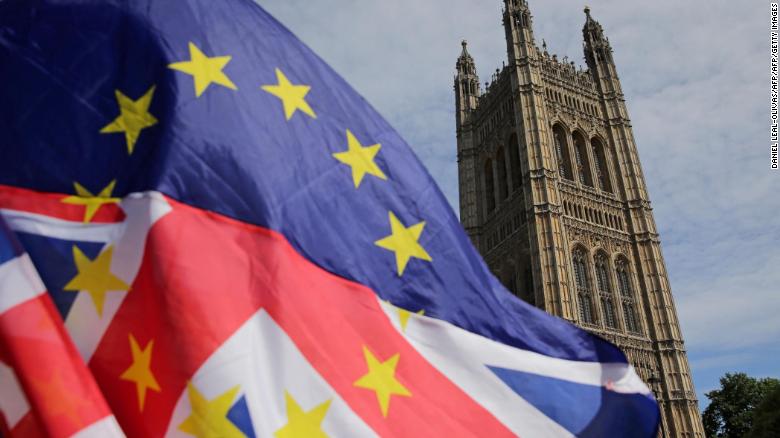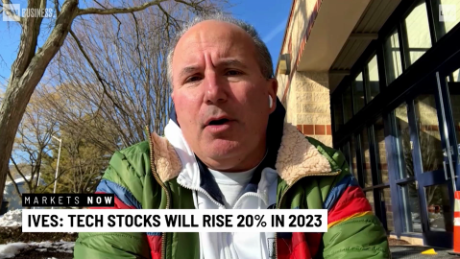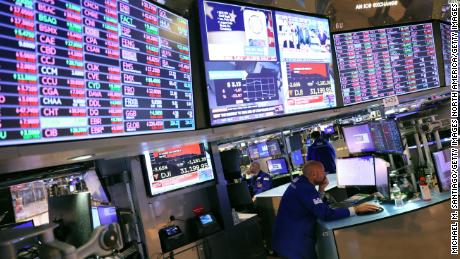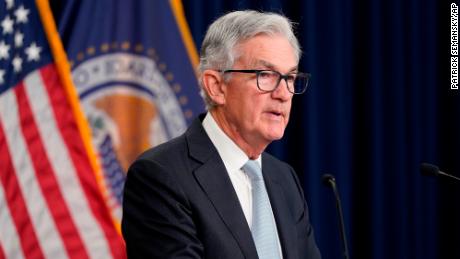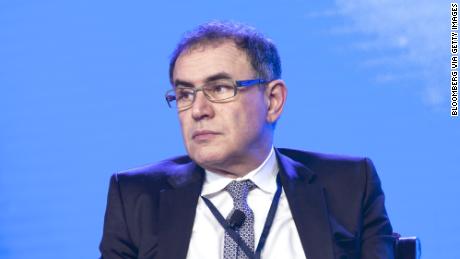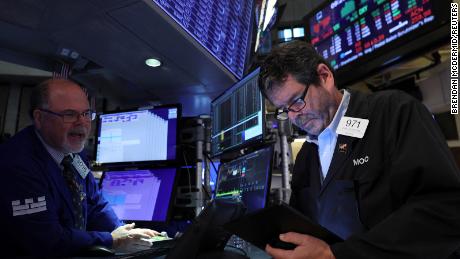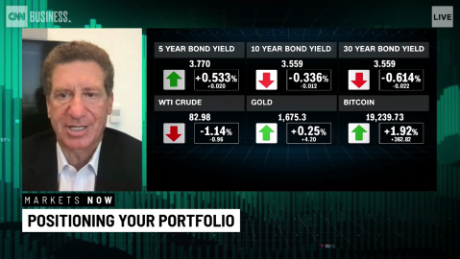London (CNN Business)Europe's biggest investment banks are getting trounced by their American competitors. And it's not clear they'll be able to make up lost ground any time soon.
Barclays (BCS), Credit Suisse (CS) and UBS (UBS) reported another round of lackluster investment banking results this week. And Deutsche Bank (DB) disclosed Thursday that first quarter revenue from its corporate and investment bank dropped 13% to €3.3 billion ($3.7 billion).
The weak earnings are likely to increase pressure on European banks that have struggled to cut costs and overhaul unproductive businesses following the global financial crisis. Many are now facing big questions over whether they can compete with Wall Street.
Deutsche Bank, which has already moved away from some investment banking activities, is back to square one with its future planning after merger talks with German rival Commerzbank (CRZBF) collapsed. At British lender Barclays, an activist investor is pushing for its investment bank to be pared back.
Analysts warn that more dramatic changes may soon be required.
"There are no easy options," said Andrew Stimpson, an analyst at Bank of America Merrill Lynch who covers the investment banking industry in Europe.
European banks retreat
Investment banks help their clients by underwriting debt and securities, brokering trades and facilitating mergers and acquisitions. When business is good, it's incredibly lucrative.
European and American banks have long dominated the industry.
US banks captured 46% of global investment banking revenue in 2007, according to Dealogic. European banks, meanwhile, earned 39%. But the US advantage has widened significantly since then.
By 2018, American investment banks had increased their market share to 52%, while European firms captured only 26%, per Dealogic.
European banks have struggled to keep pace because they lack scale and are often unwilling to make major changes, according to analysts.
US banks have exploded in size over the past decade, while Europe's banks have slimmed down. Weak economic growth has made it more difficult for European investment bankers to make money at home. Ultra-low interest rates and strict capital requirements have further reduced the resources at their disposal.
The pinch has made it harder for German, British, French and Swiss banks to spend the money needed to compete ŌĆö especially in the United States, home to the world's largest pool of investment banking fees.
"Scale and domestic market are hugely important factors as we go through this period of low interest rates, low volatility [and] potentially large global macroeconomic instability," said ŌĆŗMatt Long, managing director of European capital markets at Accenture.
Europe's banks have also been slow to overhaul their operations even in the face of obvious headwinds, a tendency that some analysts see as their biggest problem.
"They have delayed restructuring for over four decades, and that's coming back to bite," Long said.
Trouble at Barclays and Deutsche Bank
These challenges are building toward a breaking point at Barclays and Deutsche Bank, in particular.
Deutsche Bank CEO Christian Sewing has the unenviable task of explaining to investors how the bank can move forward after merger talks with Commerzbank were abandoned on Thursday.
Stimpson said that without a deal, Deutsche will need to make further cuts to its investment banking division. But he doesn't expect the bank to exit the US market entirely, as some have suggested.
"I don't think Deutsche is ready to say it's going to exit the world's biggest fee pool," he said.
The bank will publish its full earnings from the first quarter on Friday.
Barclays, meanwhile, faces the possibility that an activist investor who wants to downsize its investment bank could win a seat on its board. Shareholders will vote at the annual meeting in early May.
Edward Bramson, head of Sherborne Investors, which is Barclays' third-largest shareholder, has argued that the division eats up too many resources without providing sufficient returns. Poor first quarter results, released Thursday, could bolster his argument.
Barclays says that it's considered all options, and Bramson's plan would only destabilize recent progress. CEO Jes Staley told analysts Thursday that the bank will look to further rein in costs if fee revenue stays weak.
Some European banks have been more aggressive in reducing their dependence on investment banking.
Credit Suisse completed a three-year restructuring effort last year to focus on its wealth management division, which provides a more reliable stream of fees.
Solid results from wealth management helped deliver an 8% profit increase in the first quarter of 2019, and cushion the blow of a 36% decline in revenue from its investment banking and capital markets arm.
Big headaches
Executives at Deutsche Bank, Barclays and Europe's other investment banks face sizable immediate challenges. But they also have to think about future threats.
The investment banking industry as a whole has to deal with the fact that many companies are delaying public offerings or opting for direct listings that de-emphasize the role of banks.
Additionally, trading since the financial crisis has not been a reliable source of income.
Even industry leaders are being forced to adjust. Goldman Sachs (GS), for example, is undergoing a multi-year effort to build out new business lines that could prop up faltering trading returns.
Dealing with these big picture challenges is particularly difficult for smaller European banks that don't have spare funds to invest in new technology, Long said.
"Getting ready to address today's challenges is just step one," Long said.
